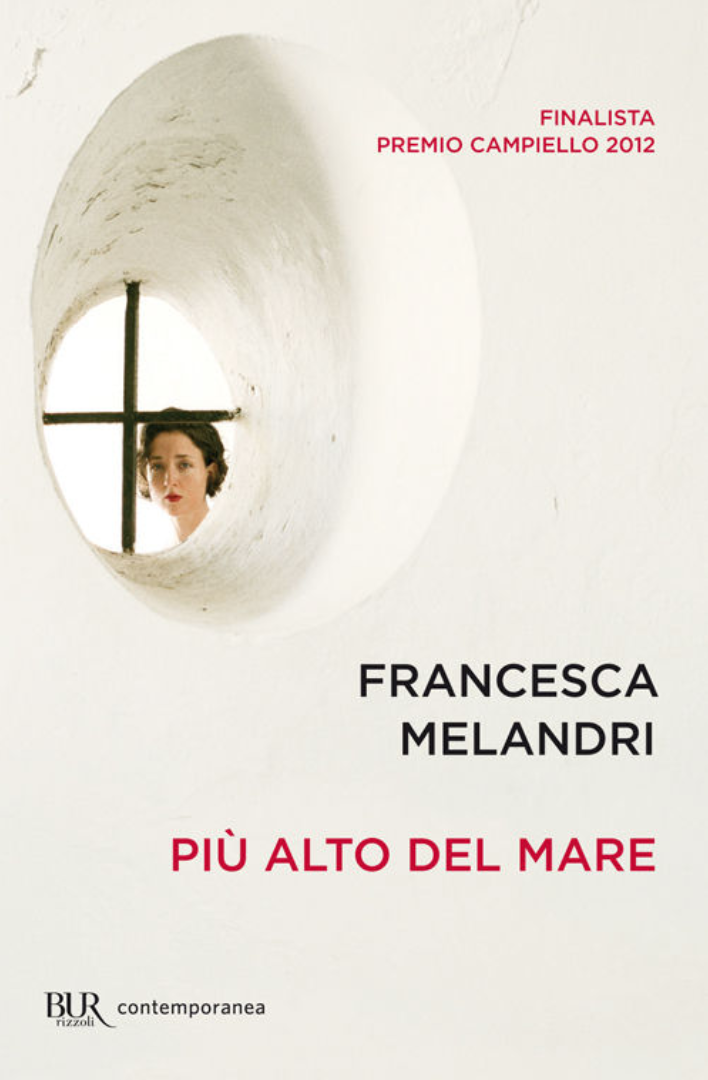Magnifica by Maria Rosaria Valentini
- Lucy Rand

- Sep 12, 2019
- 3 min read
Updated: Sep 28, 2019

Magnifica
Sellerio Editore
2016
274 pages
Maria Rosaria Valentini is an award-winning Italian poet and writer who has lived in Switzerland since the 1980s. Magnifica is her second full-length novel, and is followed by Il tempo di Andrea (2018, also published by Sellerio), which follows one of Magnifica's most mysterious characters into his future.
Magnifica won the "Onor d'Agobbio" prize for narrative in 2016 and the Premio Biblioteca di Roma in 2017. It has already been translated into German (DuMont Buchverlag) and French (Éditions Denoël/Gallimard) where it has sold so well that a pocket edition is coming out soon.
The novel begins and ends with the voice of middle-aged Magnifica. Her son, Andrea, has gone missing from their apartment in an unknown Italian city. In the intervening chapters we discover the lives of the two generations of women who came before her, through the eyes of her mother, Ada Maria.
Ada Maria, born just before the start of the Second World War, and her younger brother Pietrino grow up in a remote village deep in the Central Apennines. Their lives are barely touched by the thrust of world history and are governed solely by the rhythm, so beautifully composed by Valentini, of nature. They live in a hunting cabin, the walls lined with stuffed animals and hanging meat, with their father Aniceto, whose lover Teresina, they try to ignore. They mourn their late mother, Eufrasia. Ada Maria, the protagonist, spends her time mothering her young brother, butchering animals and sewing for the church. One day in 1956, while walking in the beech wood outside the village, she sees a man. A ghost, she thinks. He is thin and limp, heavily bearded, wrapped in a blanket.
'Ada Maria was sweating by now and her white vest was soaked, she would’ve liked to turn around and go home, but she was afraid; she was scared that if she turned around something bad would happen to her, that, for example, the man would hit her or stop her or follow her.
And so they remained like pillars of salt – fools – one in front of the other.
Then the girl remembered the thin chain she was wearing around her neck and took hold of it with one hand.
The man, with his hands, grabbed hold of his head and closed his eyes. She took advantage and slowly retreated.
A voice said: Auf Wiedersehen.'
From that moment on, Ada Maria’s life changes irrevocably. She gradually discovers that the German is an ex-soldier, who after the war decided to remain in his hideout deep in the Italian forest, rather than returning to Germany, to society. Through Ada Maria’s visits to deliver him baskets of food and clothing, their relationship intensifies, communicating through single German words – Himmel, Bäume, Schmetterling – and a surprisingly tender compassion that endures long after his premature death and the birth of their child, Magnifica.
This is a matrilineal family saga spanning the Second World War to today, transporting its characters and readers from a cave in the forest outside the remotest of alpine villages, to a modern apartment in a noisy city. Outside events touch the family in small ways – Ada Maria worries about her daughter’s ambitions with the 1968 student occupations, and their visits to the doctor are disturbed by the unrest of the Anni di piombo - yet the novel’s atmosphere is quiet and intense. It is a saga marked by death, suffering and stoicism, yet maintains a powerful gentleness and intimacy. Valentini’s writing is poetic, romantic and at times gruesome.
Italian Reviews
'The language used by Maria Rosaria Valentini is extraordinary: a high, literary Italian, very expressive, full of complex constructions, and specific terms to describe the provincial world that provides the narrative's backdrop: flowers, plants, trees, insects, butterflies, each called by their correct name, like a precious list of the richness of nature through which the protagonists roam, where emotions reside that connect the various characters so powerfully.'
Elisabetta Bolondi, Solo Libri
'Valentini tells us a surprising family saga, entirely female, entirely matrilineal, a story with a sense of the gothic thanks to the atmosphere she has created that exalts all that is old and ruined. The sublime way that the characters experience relationships reaches the depths of our emotions, both positive and negative. We get such a clear sense of the unsustainable torment and uncontainable happiness of the characters. Valentini's writing is evocative and refined, particularly attentive to detail without being redundant, a style we can undoubtedly call poetry.'
'A surprising and exciting novel. Loves, tragedies, secrets, passions and
enchanted days set in a harsh rural world that gets tinged with fable.'
Dipiù
English rights available
Rights queries:
Malatesta Literary Agency (Italy)
Contact: Renata Petrusheva
[Translations all my own]
Sample translation available



Comments